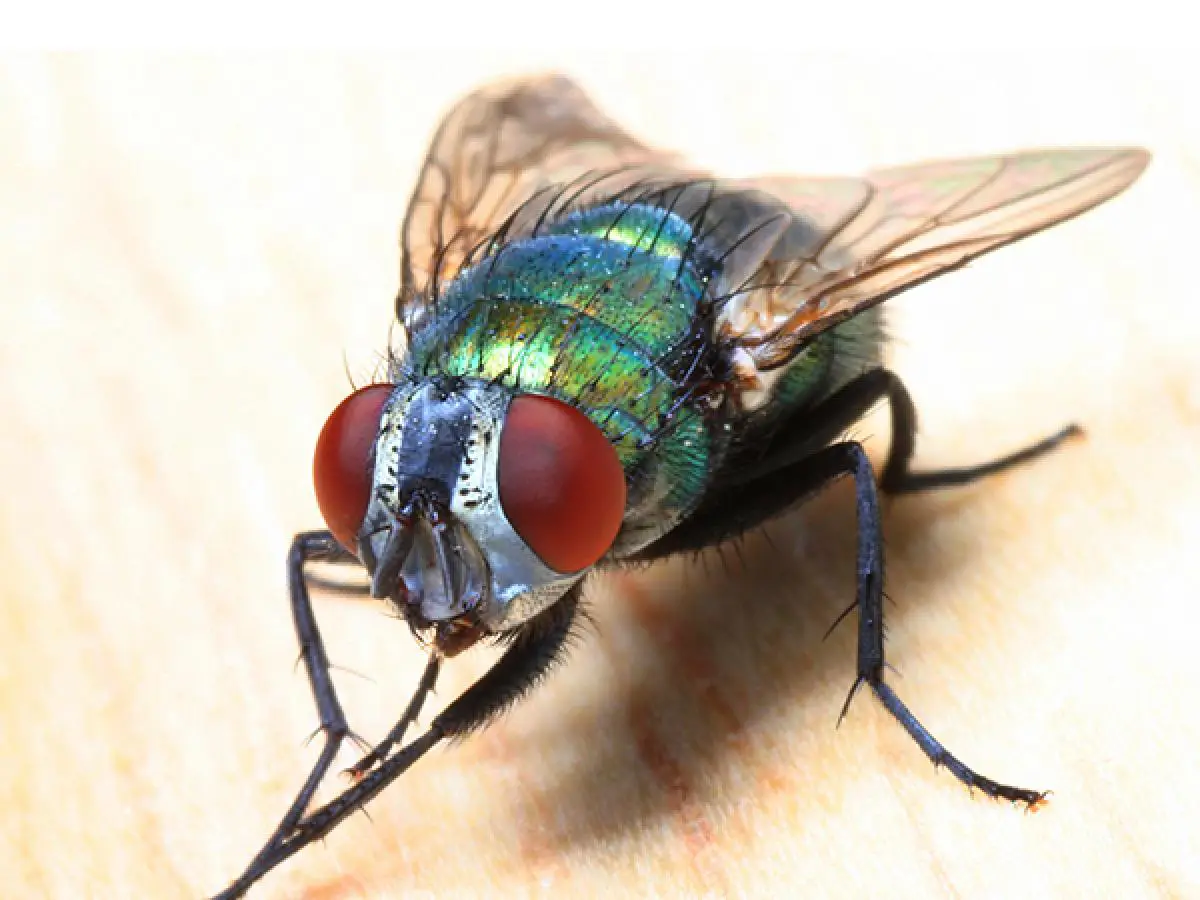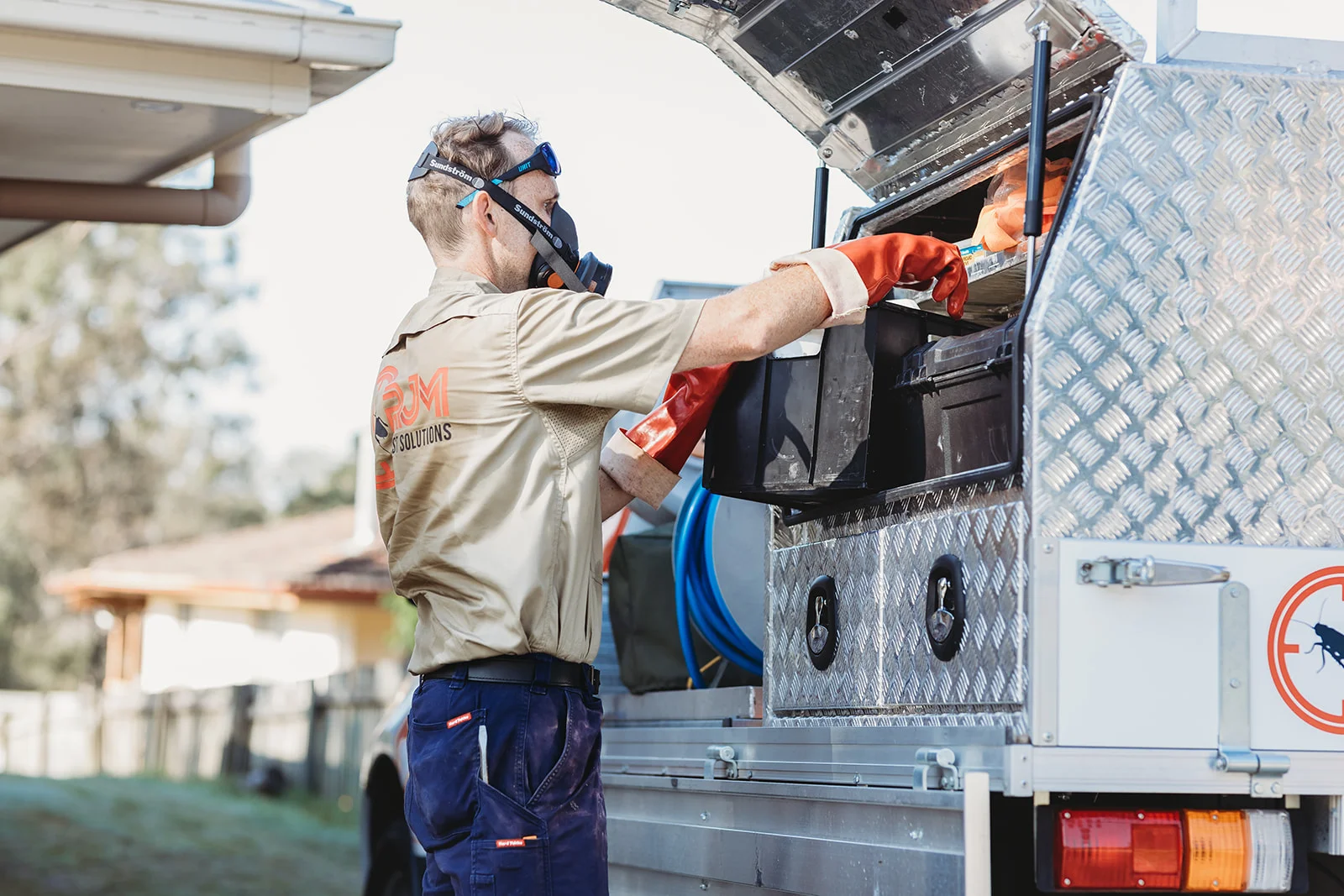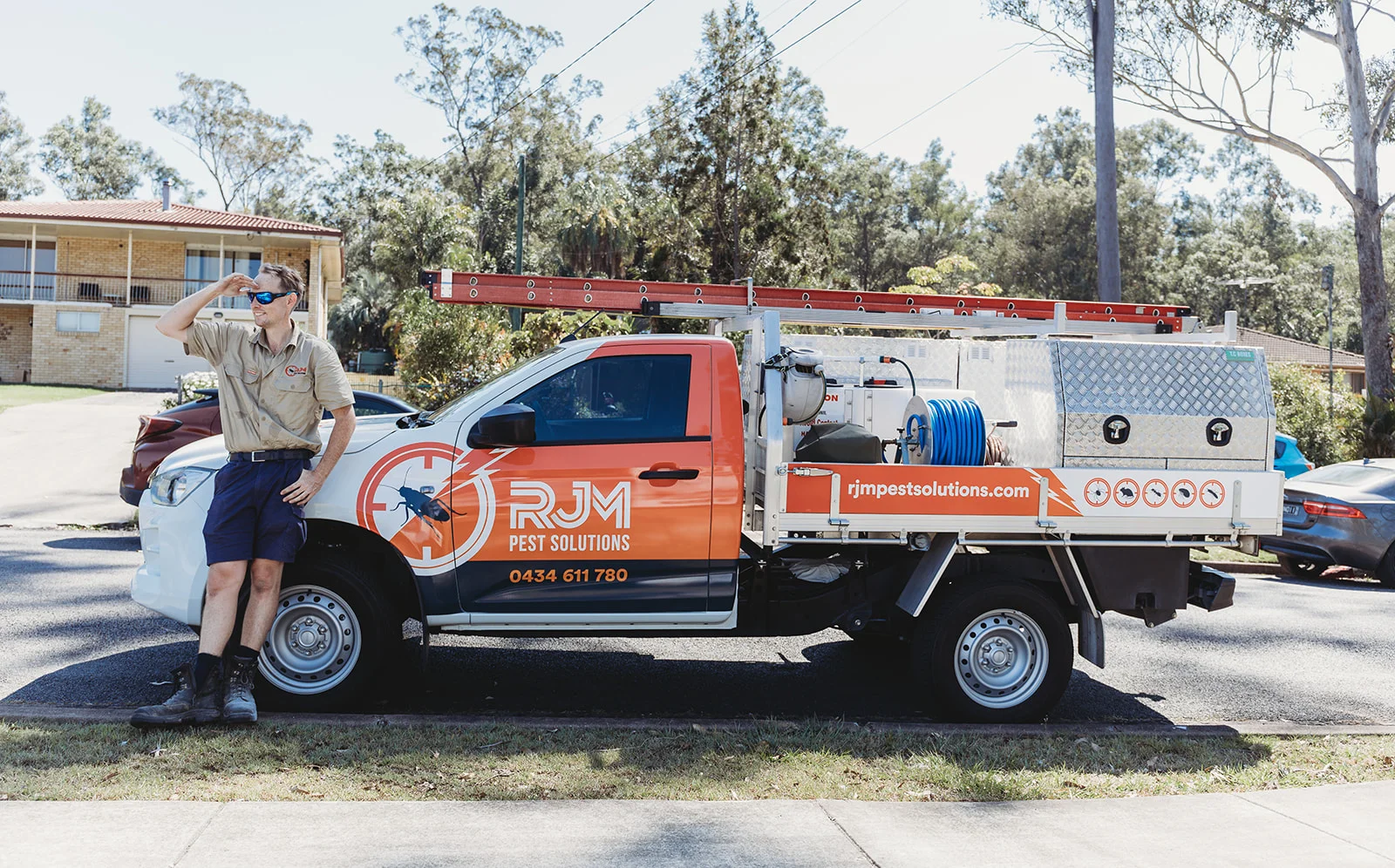Flies Pest Control
Flies are more than just annoying pests. They are a major health risk, especially when they invade your home, kitchen, or business.
Flies pest control focuses on fast identification, safe and targeted treatments, and long-term prevention strategies that suit the local environment.
Whether you’re dealing with a persistent fly infestation or trying to stop one before it starts, getting professional help can protect your property and your health.
Expert pest control ensures the problem is treated at the source and helps prevent future outbreaks before they begin.
Why Flies Invade Homes and Why You Should Act Fast
Flies are drawn to moisture, food waste, and warmth, all of which are common in homes and workplaces across Ipswich. The region’s humid conditions make it an ideal breeding ground for flies throughout the year.
Common entry points include open windows, gaps under doors, and damaged flyscreens. Once inside, flies can quickly multiply and spread bacteria onto surfaces, food, and utensils.
The problem escalates quickly. Just one pair of flies can lead to hundreds of eggs in a matter of days. Left untreated, this can result in contamination and reputational damage for homes and businesses. Acting quickly helps you:
- Avoid food contamination and disease risks
- Maintain a safe, hygienic environment
- Prevent fly infestations from getting out of control
- Protect your family, staff, or customers from exposure
Early intervention and preventative measures can stop flies from becoming a serious hazard.
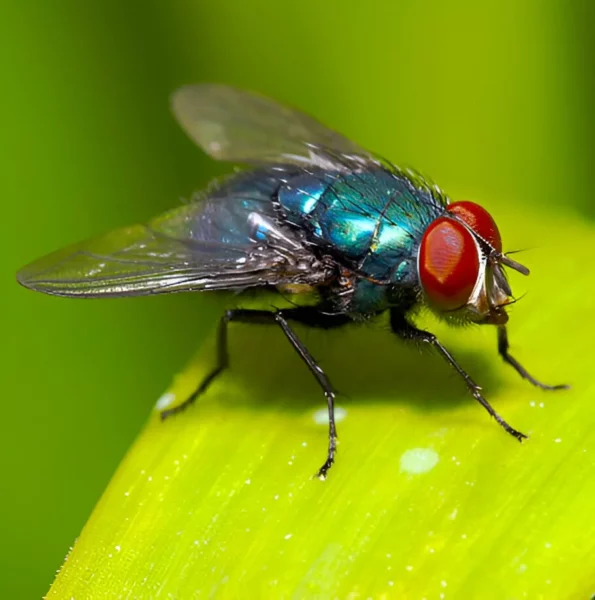
Common Types of Flies
House Flies (Musca domestica)
House flies are the most common species encountered in homes and businesses. They are medium-sized, typically grey in colour, and have four distinct black stripes on their thorax. These flies breed in organic waste, rubbish bins, pet droppings, and compost.
Known for spreading over 100 different disease-causing organisms, they’re a major health hazard when present near food. Effective control relies on eliminating breeding sites, improving sanitation, and applying targeted treatments.
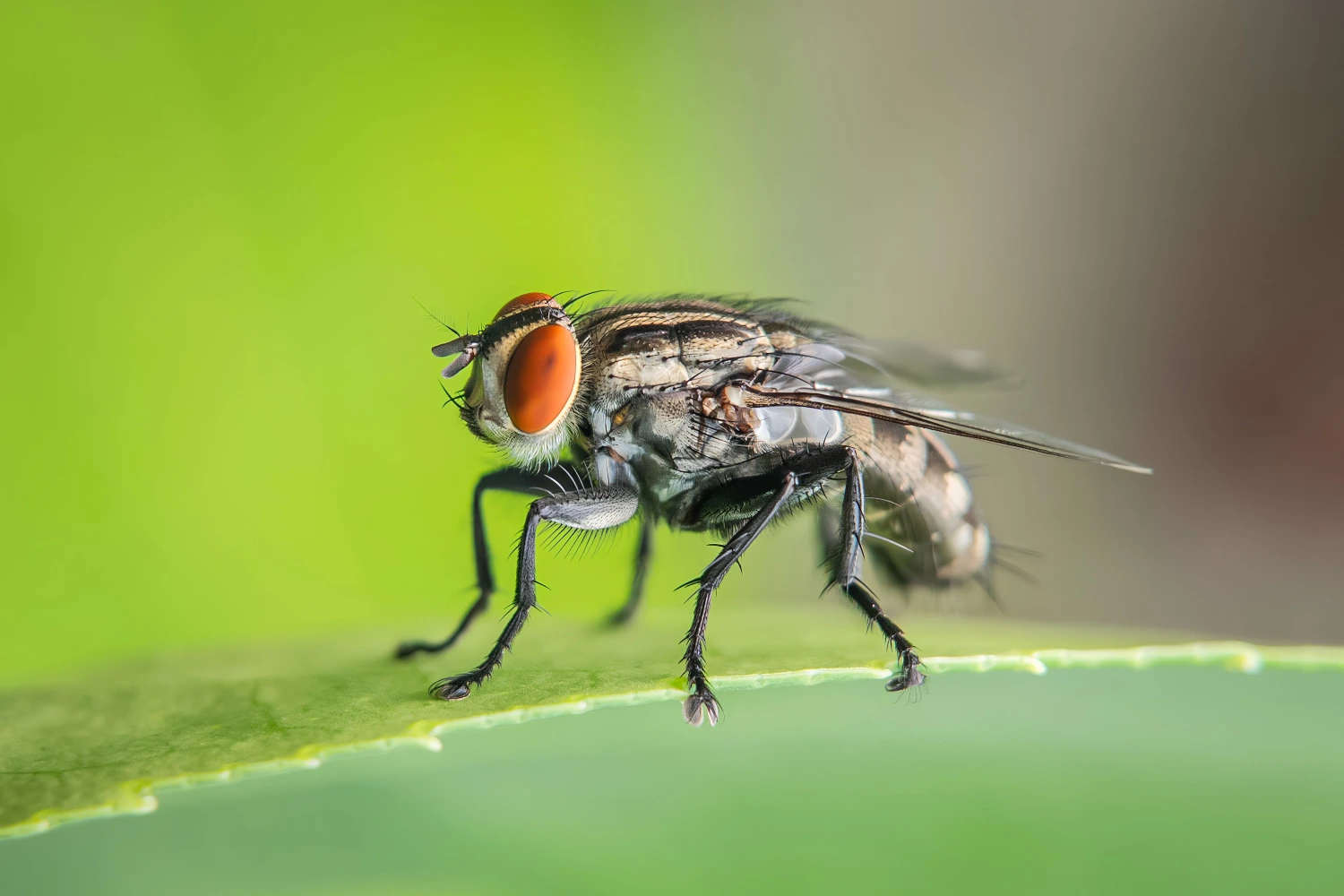
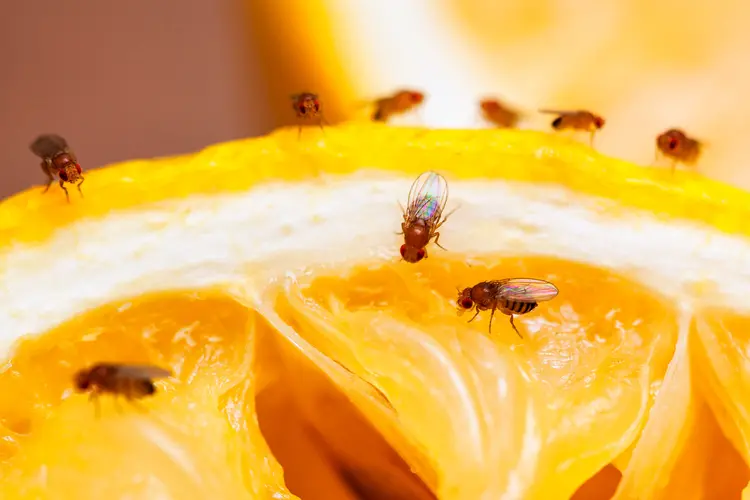
Fruit Flies (Drosophila spp.)
Tiny in size but capable of big problems, fruit flies are most often seen hovering around fruit bowls, sugary spills, and drains. They have a tan-to-brown body and distinct red eyes.
Fruit flies breed in fermenting organic matter such as overripe fruit, wine, and vinegar, and they can lay hundreds of eggs in these moist environments.
Eliminating their food and breeding sources is essential, along with using traps and safe chemical treatments to break their lifecycle.
Blow Flies (Calliphoridae family)
Blow flies are larger than most other common flies and are easy to identify due to their shiny metallic appearance, often green, blue, or black.
These flies are attracted to decomposing meat, dead animals, and rotting waste, making them especially common around rubbish bins or areas where rodents or pests may have died.
Because they lay eggs in decaying matter, they pose a significant hygiene threat, particularly in food and healthcare settings. Controlling blow flies involves strict sanitation, carcass removal, and application of residual insecticides or baits.
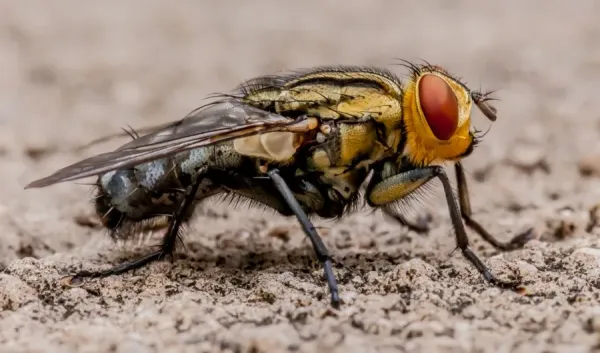
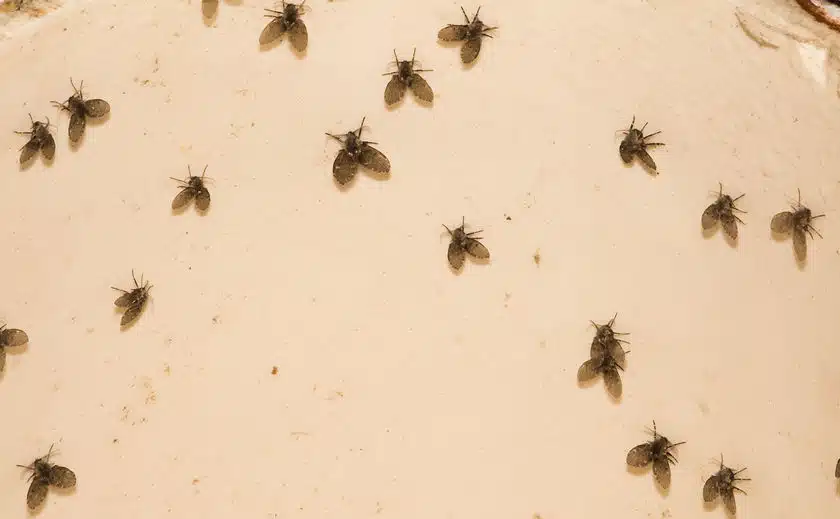
Drain Flies (Psychodidae family)
Drain flies, sometimes called moth flies, are small, fuzzy-looking insects that breed in the organic sludge found in drains, pipes, and damp areas. They have a distinctive slow and erratic flying pattern, often gathering near sinks, showers, and floor drains.
While not dangerous themselves, their presence indicates a sanitation issue and can lead to further infestation if not addressed. The key to controlling drain flies is cleaning the drain interiors thoroughly, removing organic build-up, and treating hidden moisture spots with targeted solutions.
Identifying which species you’re dealing with is the first step in choosing the right treatment and preventing future outbreaks.
How to Identify Flies in Your Home
Flies are generally visible, but the scale of an infestation is often underestimated. Be on the lookout for these common signs:
- Flies resting on walls, ceilings, or windows
- Clusters of flies around garbage bins or drains
- Buzzing or swarming activity in kitchens or food areas
- Larvae or maggots in waste or organic matter
- Bad odours near drains, bins, or decomposing material
If these symptoms sound familiar, it is time to schedule a pest control inspection to assess the extent of the problem.
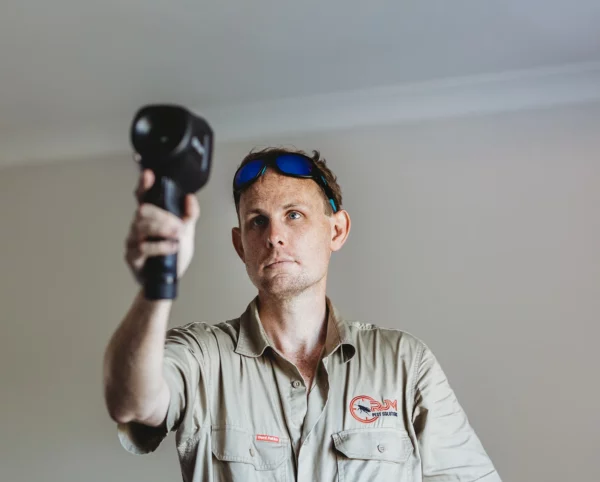
A deeper fly infestation may not always be obvious at first. Warning signs include:
- Persistent buzzing and visible fly activity indoors
- Maggots appearing in rubbish bins, compost, or drains
- Fruit flies gathering near sinks, wine glasses, or fermenting items
- Black specks from fly droppings on walls, benches, or fittings
- Strong or unpleasant odours from drains or bin areas
These signs point to an active breeding site. Immediate treatment is essential to prevent the situation from worsening.
Keeping flies out of your home or workplace starts with consistent hygiene and maintenance practices:
- Fix leaking pipes and clear blocked drains to eliminate standing water
- Store food properly in sealed containers
- Avoid leaving fruit, scraps, or leftovers exposed
- Empty rubbish bins regularly and keep them tightly sealed
- Repair or replace damaged flyscreens on windows and doors
- Seal small gaps or cracks around windows, doors, and vents
- Clean drains frequently to remove organic build-up
- Install insect light traps in commercial or high-traffic settings
Proactive prevention is far more cost-effective than treating an active infestation.
Effective Fly Control Treatment in Ipswich
Professional fly control goes beyond basic sprays. A comprehensive service typically includes:
- Full inspection of the property to identify fly species and breeding sites
- Application of safe, targeted insecticides or drain treatments
- Installation of insect light traps or baiting systems where appropriate
- Advice on sanitation, food storage, and exclusion methods
- Follow-up inspections to monitor effectiveness and prevent recurrence
All treatments are applied with care and are safe for families, pets, and food environments when managed by licensed professionals.
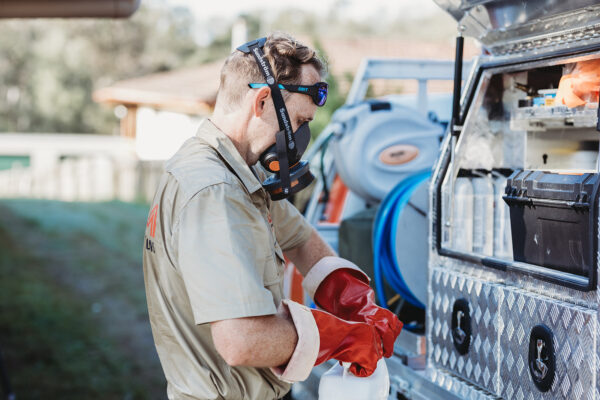
Fly control is most effective when done by a qualified expert. A licensed technician will:
- Perform a detailed site inspection and species identification
- Apply the correct treatment tailored to your specific situation
- Provide advice on long-term prevention and maintenance
- Help businesses stay compliant with food safety and hygiene standards
RJM Pest Solutions offers expert fly control services across Ipswich. Our team understands local pest patterns and uses targeted, proven methods to eliminate infestations and protect your space.
If flies are disrupting your home or threatening your business hygiene, now is the time to act. The longer you wait, the more flies will breed, and the harder they will be to eliminate.
RJM Pest Solutions offers fast inspections, safe treatments, and expert advice to help keep your property fly-free for the long term.
Book your flies pest control inspection today and take the first step toward a cleaner, safer space.








